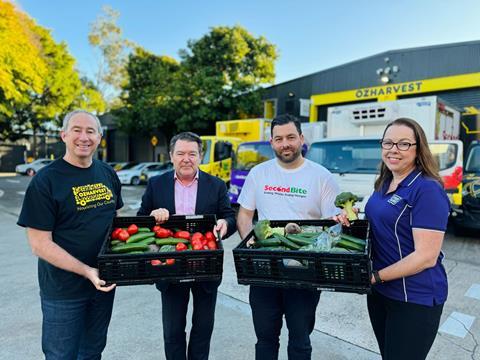Legislation targets Australian farmers, wholesalers and transporters with Australian tax incentives to donate surplus fruit, vegetables and protein to food relief charities

West Australian senator Dean Smith will table a private senator’s bill, the Incentivising Food Donations to Charitable Organisations Bill in the Senate on 3 July.
It aims to change Australia’s tax system to encourage donation, rather than dumping, of food – with the potential to deliver millions of extra meals and help Australia reach its bipartisan commitment to halve food waste by 2030.
The bill is inspired by the National Food Donation Tax Incentive, developed by Foodbank, SecondBite and OzHarvest, and which incentivises food businesses, such as farmers, wholesalers and transporters to donate surplus food and allied services to Australian food relief charities.
Smith said the bill represented a single, straightforward solution to two problems.
“Food relief charities are fighting to meet unprecedented demand, while at the same time an unbelievable amount of food is dumped each year, much of it edible, and often because it’s cheaper than donating it,” he said.
“My private senator’s bill – originally shaped by the National Food Donation Tax Incentive and refined through close consultation with the Australian charity sector – is aimed at turning that around and delivering meaningful help to Australians in need.”
The incentive has garnered support in recent parliamentary inquiries and was an important recommendation in the House of Representatives Standing Committee on Agriculture’s Report into Food Security in Australia.
It also enjoys the widespread endorsement of representative organisations and businesses in the Australian food industry, and works successfully in other countries including France, Canada and the US.
Foodbank Australia chief executive, Brianna Casey, stressed the importance of this incentive.
“We have families unable to put food on the table despite tonnes of perfectly edible food being dumped or ploughed in each year. We know that households under financial pressure have been forced to reduce – or even remove – their spend on fresh fruit, vegetables and protein, meaning demand for these products at food banks across Australia has skyrocketed,” she said.
“This tax incentive is smart policy and the debate in the Senate should be about how quickly we can introduce it, not about party politics.”
OzHarvest chief executive, James Gough said demand for food relief is at an all-time high.
“This bill has the potential to get edible food off farms and onto the plates of those who need it most, addressing food security and food waste simultaneously,” he said.
“It’s crucial for politicians to recognise this need in the community and unite to implement this reform.”
SecondBite chief executive, Daniel Moorfield added that SoundBite was committed to working with the government and all stakeholders to ensure the successful implementation of this tax incentive.
“Together, we can make a lasting impact on the lives of millions of Australians and move closer to achieving our food waste reduction goals,” he said.
The bill is expected to be referred to a committee for inquiry following its presentation to the Senate. Stakeholders will have an opportunity to make submissions with their suggested changes and improvements, with a parliamentary report to be delivered by 30 October.



